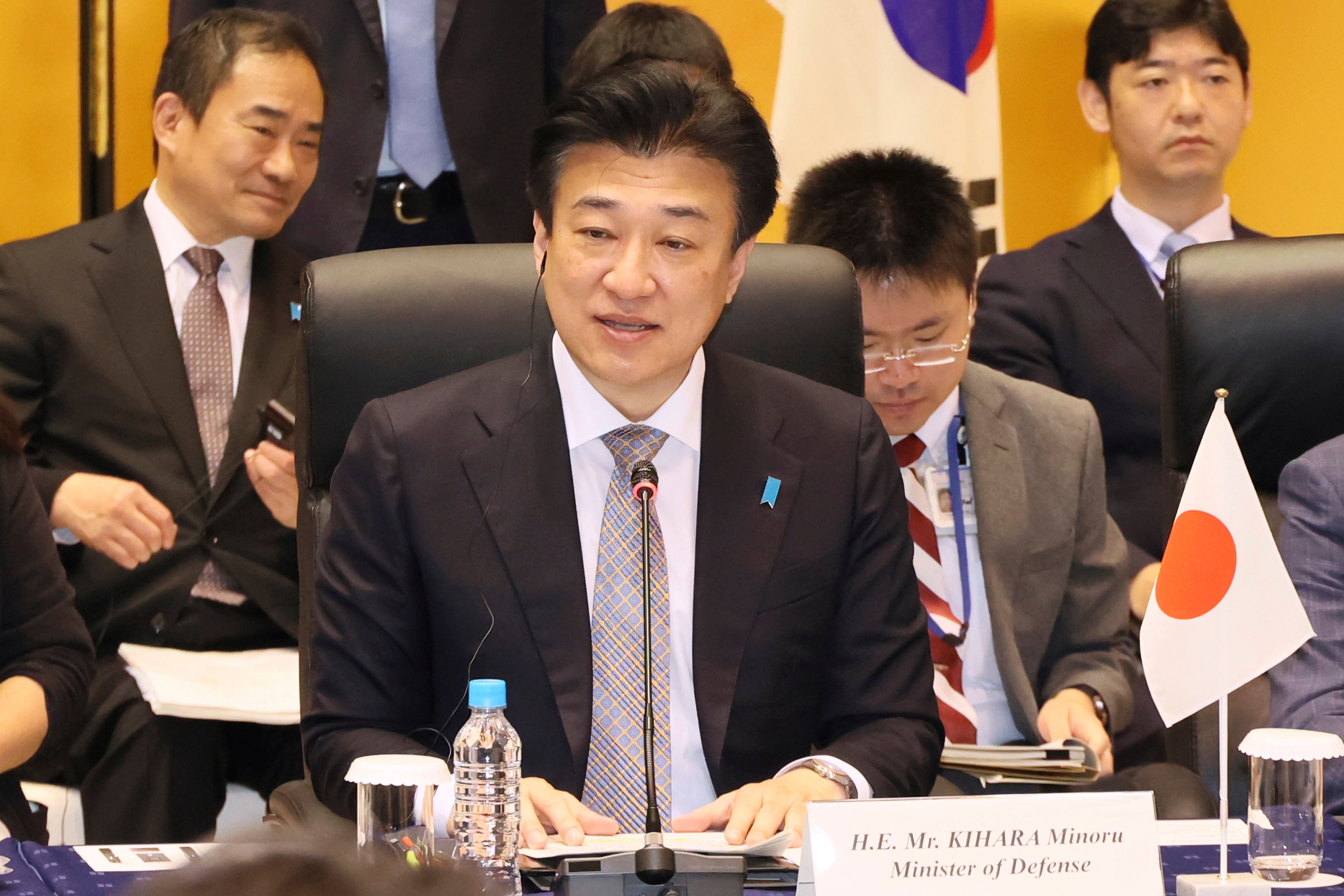Japanese warplanes use flares to warn a Russian spy plane to leave airspace
Japan says its warplanes used flares to warn a Russian reconnaissance aircraft to leave northern Japanese airspace

Japan said its warplanes used flares to warn a Russian reconnaissance aircraft to leave northern Japanese airspace on Monday.
Japanese Defense Minister Minoru Kihara told reporters that the Russian Il-38 plane breached Japan’s airspace above Rebun Island, just off the coast of the country’s northernmost main island of Hokkaido, for up to a minute in three instances, during its five-hour flight in the area.
It came a day after a joint fleet of Chinese and Russian warships sailed around Japanese northern coasts. Kihara said the airspace violation could be related to a joint military exercise that Russia and China announced earlier this month.
Japan scrambled an undisclosed number of F-15 and F-35 fighter jets, which used flares for the first time after the Russian aircraft apparently ignored their warnings, Kihara said.
“The airspace violation was extremely regrettable,” Kihara said. He said Japan “strongly protested” to Russia through diplomatic channels and demanded preventive measures.
“We will carry out our warning and surveillance operations as we pay close attention to their military activities,” he said.
Kihara said the use of flares was a legitimate response to airspace violation and “we plan to use it without hesitation.”
Japanese defense officials are highly concerned about growing military cooperation between the China and Russia, and China’s increasingly assertive activity around Japanese waters and airspace. It led Tokyo to significantly reinforce defenses of southwestern Japan, including remote islands that are considered key to Japan’s defense strategy in the region.
Earlier in September, Russian military aircraft flew around southern Japanese airspace. A Chinese Y-9 reconnaissance aircraft briefly violated Japan’s southern airspace in late August.
The Chinese aircraft carrier Liaoning, accompanied by two destroyers, sailed between Japan’s westernmost island of Yonaguni and nearby Iriomote, entering close to Japan's waters.
According to Japan’s military, it scrambled jets nearly 669 times between April 2023 and March 2024, about 70% of the time against Chinese military aircraft, though that did not include airspace violations.
Japan and Russia are in a teritorial dispute over a group of Russian-held islands, which the former Soviet Union seized from Japan at the end of World War II. The feud has prevented the two countries from signing a peace treaty formally ending their war hostilities.
Bookmark popover
Removed from bookmarks